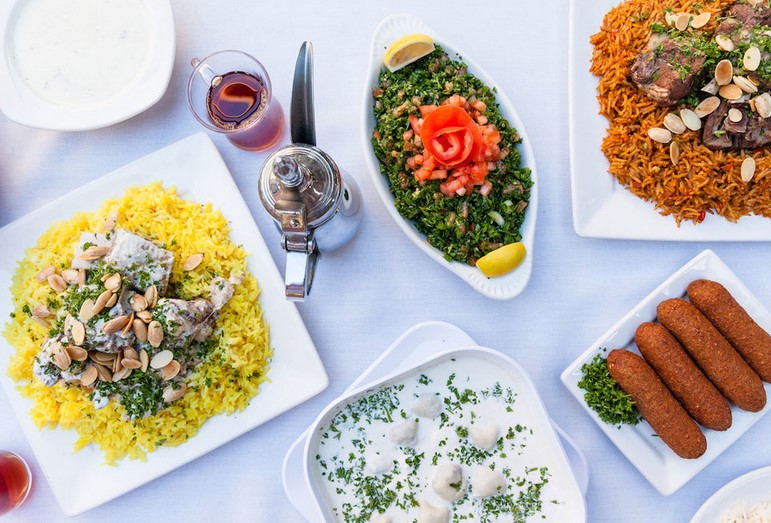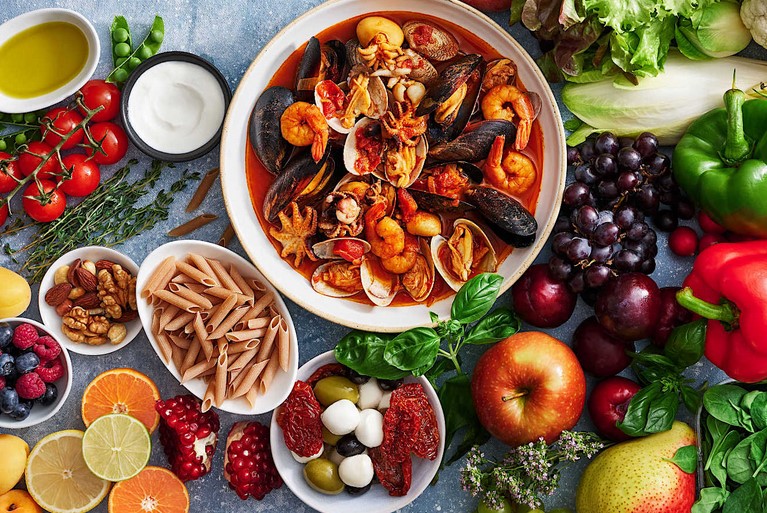You’ve probably heard about the Mediterranean diet. In case you’re unfamiliar with it, the diet involves eating a variety of legumes, nuts, and grains. You can add these to your daily meals or eat them in moderation every week. But there are some things you should avoid. Here’s a Mediterranean diet food list.
Fresh veggies and fruits, nuts, seeds, beans, and fish are staples in the Mediterranean diet. It is based on the way people in certain parts of the Mediterranean were living and eating, so it is quite sustainable and realistic.
Chickpeas
When it comes to protein, legumes are an excellent choice. Not only are they lower in fat, but they also contain more fiber, folate, magnesium, and zinc. The Mediterranean diet recommends three servings of pulses per week, including chickpeas. Cooked chickpeas are especially high in potassium and iron. Plus, they are relatively inexpensive and are a great replacement for meat.

Peas
Peas are part of the traditional Mediterranean diet. This diet focuses on plant foods and seafood with moderate amounts of red meat and poultry. These foods are abundant in the Mediterranean region and are often used in pasta meals and dips.
Lentils
Lentils are a staple of Mediterranean cuisine and are a great addition to a diet rich in plant-based protein. They are a good source of fiber and can be cooked into a variety of dishes. They are also excellent sources of protein and are high in vitamins and minerals. They have a delicious flavor and are a great addition to soups or salads.
Beans
A key component of the Mediterranean diet is beans, which are low in fat and high in protein. They’re an easy and delicious addition to most meals and are versatile enough to be used in a variety of ways. Beans are a good source of fiber and protein and can reduce cholesterol. Several kinds of beans are good for you, including black beans, pinto beans, kidney beans, and white beans.
Spinach
In a recent US News and World Report ranking, the Mediterranean diet was named the healthiest diet worldwide. Researchers have linked the diet to a longer life expectancy, lower rates of type 2 diabetes, and heart disease. Additionally, the diet has been linked to reduced risk of age-related memory decline.
Nuts
Nuts are a common part of the Mediterranean diet and can help you lose weight. They are packed with trace minerals and antioxidants. Some studies have shown that eating nuts can reduce the circumference of your waist. Nuts also increase the
HDL levels in your blood. HDL is a type of cholesterol-fighting protein that transports cholesterol from your body to your liver where it is broken down into bile acids, which are then secreted in urine. To reap the benefits of nuts, make sure to buy raw, unprocessed, and low-salt varieties. Also, make sure you check the serving size of the nuts you purchase.
Legumes
Legumes are an important part of a Mediterranean diet food list. These plant foods contain high amounts of protein and are low in fat and cholesterol. They also contain iron and other nutrients that help prevent diseases, including cardiovascular disease. They are also good sources of fiber.
Whole grains
Whole grains are the backbone of a Mediterranean diet. You can find these grains in a variety of dishes, from pancakes to soups. You can also use them to make breads and muffins. Among these grains are oats, brown rice, rye, and spelt. They can also be enjoyed plain or mixed with vegetables.

Olive oil
Olive oil is one of the essential ingredients in a Mediterranean diet. This type of oil is packed with beneficial antioxidants and nutrients. It is made by a special process in which the oil is naturally extracted from olives. The oil contains over 30 different types of phenolic compounds, which are powerful antioxidants that fight free radicals. Free radicals are harmful to the body because they cause cell damage and speed up the aging process. Olive oil is also good for your heart, thanks to its high monounsaturated fat content.
Start with our recipe section. From Greek Salad to Eggplant Parmesan, the Medicinal Chef will introduce you to dishes you can make at home. Better yet, check out our calendar of local Mediterranean cooking classes from Mediterranean Foods & Culinary Arts in Gaithersburg, Md., and other venues around the DC area.


